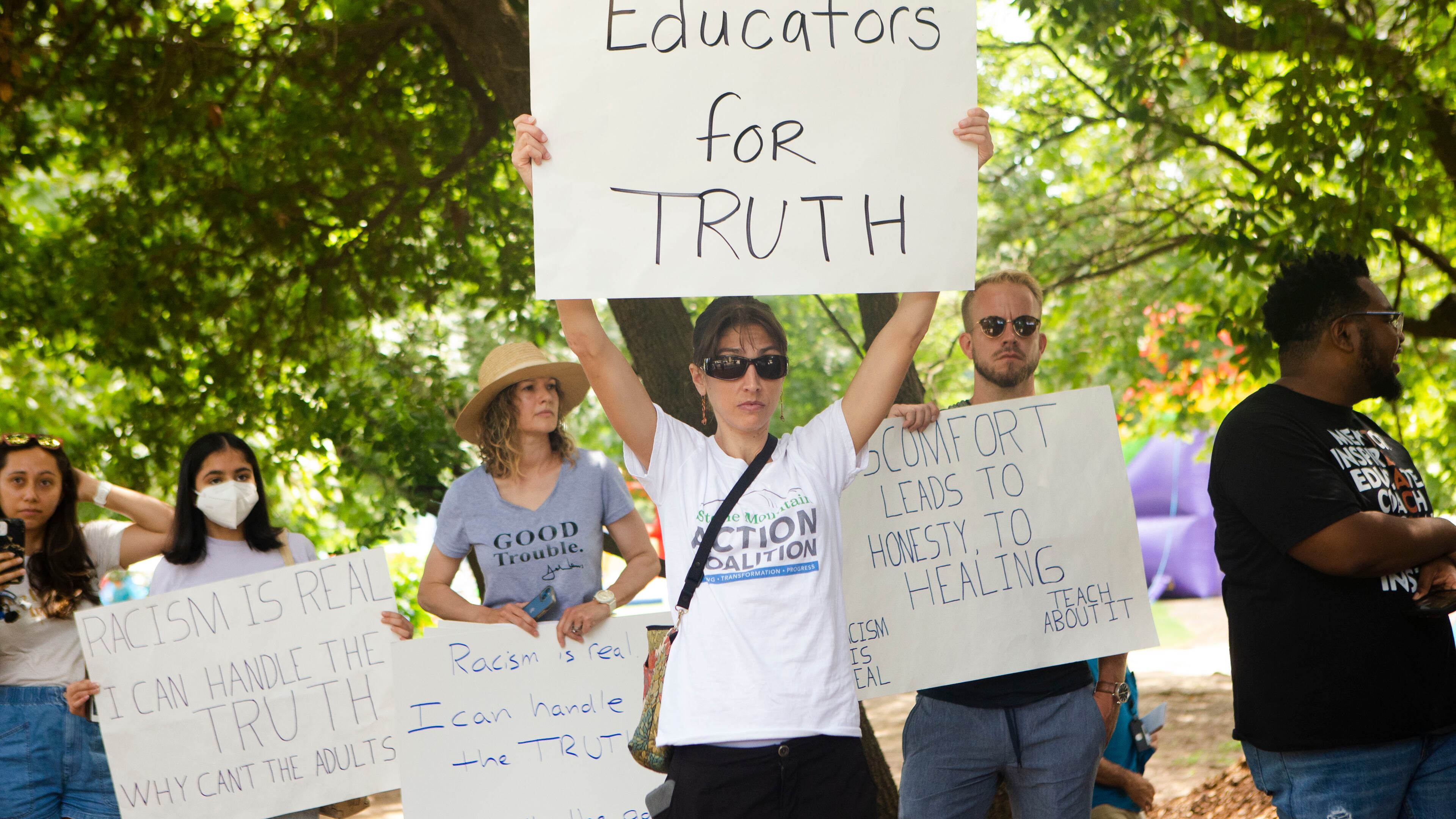Top Georgia teacher: Politicians weaponized social-emotional learning

In a guest column, Tracey Nance, Georgia’s 2020 and 2021 Teacher of the Year, criticizes politically motivated attacks on social and emotional learning.
Nance served on the Georgia State Board of Education as an ex-officio member and traveled the state, increasing awareness of both educational equity and the magnitude of teachers’ impact. She continues to advocate through nonprofit organizations such as Page Turners Make Great Learners and is now a Voices for Honest Education Fellow with the National Network of State Teachers of the Year.
By Tracey Nance
The attacks on educators for promoting kindness and inclusion are sickening, and it is time we pay attention.
The school year was brand-new when Oklahoma Secretary of Education Ryan Walters publicly doxed and requested to revoke high school teacher Summer Boismier’s certification for sharing a QR code to a public library’s digital “Books Unbanned” shelf.
Next, I saw an extremist and his following torment a Maine kindergarten teacher for teaching kindness, having a small rainbow heart, and displaying an “Our Class is a Family” sign. And, in a giant leap backwards, educators who support students seeking acceptance are being harassed and threatened.

This type of behavior is extremely dangerous — and it’s happening to our children’s teachers. It is clear that my own brush with political meddling in social-emotional learning last year was just the beginning of a much larger scheme.
Recent attacks on kindness and empathy tell us everything we need to know about the bans on honest education: These educational gag orders were never about protecting our children’s feelings. They’re about legislating prejudice and sowing distrust in our public schools, and they’re hurting our kids.
As someone who has advocated for children in and beyond the classroom for over 20 years, and who has taught SEL at the school, district and state level, I am outraged and I think you should be too.
Educators and parents have long understood the value of teaching students how to understand their own thoughts and emotions, relate to others, and make responsible decisions. Studies show that SEL positively impacts students’ academic achievement, school attendance and ability to collaborate, and reduces stress. For these reasons, more than 90% of America’s schools report they actively work to support students’ social-emotional development.
“We Are a Family” was the classroom motto that saved my class of fourth graders one year. I walked into a room of diverse needs, where 31 9- and 10-year-olds struggled to name their feelings, cope with the demands of their home lives, and understand one another. Students’ insecurities were further exacerbated by a controversial school closing and merger that brought new diversity to the school.
Teaching students how to make responsible decisions, support one another, empathize, and celebrate both similarities and differences transformed our classroom. We helped each other grow. We were patient and kind. We spent a lot of time together, and learned how to disagree respectfully. We encouraged one another when we made mistakes, and I worked to meet each student where they were, both social-emotionally and academically. We built a positive classroom community where students were more willing to take academic risks and their growth was evident. We were, indeed, a “classroom family.”
In 2020, I would have argued that Georgia was a leader in social-emotional learning, as I taught SEL to school, district and state education leaders during my tenure as state Teacher of the Year. The Georgia Department of Education even hired me to teach a SEL and culturally relevant teaching workshop for school leaders in February 2020.
It was only over a year later when former U.S. Sen. David Perdue’s campaign team pointed to my slides on the Georgia DOE’s website during his race for governor and accused Gov. Brian Kemp of teaching about race that my SEL materials were removed. Support for social-emotional learning waned only when politicians weaponized it.
Parents must not be misled by these false narratives. The majority of families actually approve of and support their local schools! Ask your children what they are learning. Talk with their teachers. Tell others that you support your child’s teachers. Even better, tell your child’s teachers — they need to hear it.
As the Oklahoma Education Association President, Katherine Bishop, told Ryan Walters in response to his request to revoke Summer Boismier’s teaching certificate, people should “Spend more time resolving the real issues facing (students). Such as the growing educator shortage crisis and the broadening resource gaps created from the underfunding of our public schools who serve every child, not just some.” Walters is running against Democrat and 2021 Oklahoma Teacher of the Year Jena Nelson for state superintendent next month.
We must support our children’s educators and uphold the value of teaching our children social-emotional skills. Teaching kindness, and being kind, matters.

